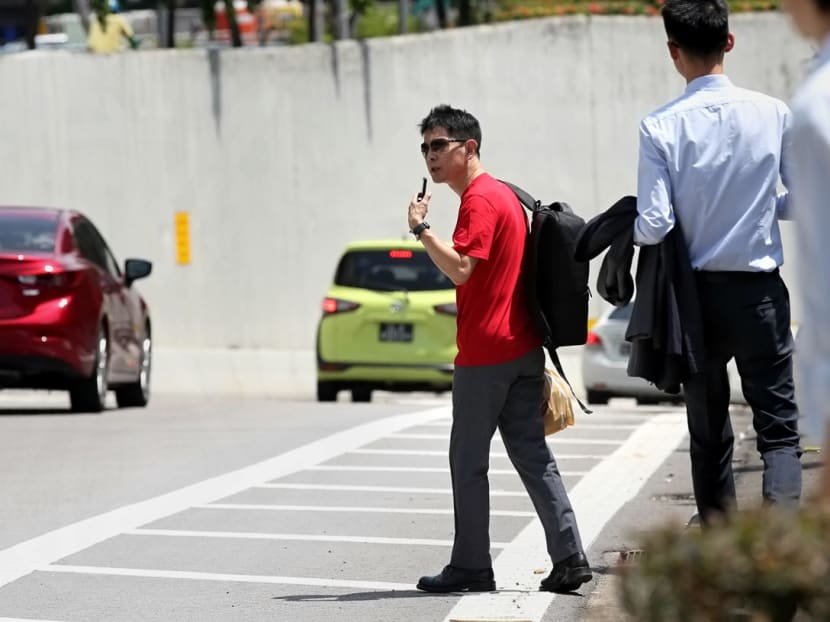Former NUS lecturer and fugitive of 17 years found guilty of molesting 5 schoolboys in 1999
SINGAPORE — Just before he could be charged in court in 1999 for molesting five Secondary 1 boys, Chan Cheng ran away to Malaysia.

Chan Cheng (left) ran away to Malaysia before he could be charged in court for his crimes but 17 years later was arrested and extradited.
SINGAPORE — Just before he could be charged in court in 1999 for molesting five Secondary 1 boys, Chan Cheng ran away to Malaysia.
The former psychology lecturer at the National University of Singapore lived as a wanted man in Malaysia for 17 years, until he was arrested there and sent back to Singapore in December 2016.
He then claimed trial to his offences, which happened during a school camp for Secondary 1 students.
On Monday (July 22) in the State Courts, two decades later, the 59-year-old Singaporean was found guilty of five charges of outrage of modesty.
District Judge Shaifuddin Saruwan said he was satisfied that the victims, who are now about 33 years old, were all credible in giving their evidence.
Sentencing was adjourned to July 29.
Chan could be jailed up to two years, fined or get both penalties for each charge under the 1985 revised edition of the Penal Code. While convicted offenders may also face caning, those above 50 years old cannot be caned by law.
Another seven charges, relating to four other victims, were stood down for the trial. Deputy Public Prosecutor James Chew said that the court would deal with them after Monday’s hearing.
The prosecutor also asked for Chan's bail of S$60,000 to be revoked, given his history of absconding. Mr Ramesh Tiwary argued that as Chan “returned to Singapore because of his mother’s age”, there was “absolutely no reason for him to abscond”.
District Judge Shaifuddin allowed Chan to remain out on bail, but ordered him to report to his investigation officer every day.
WHAT HAPPENED
Chan molested the boys while working as a consultant for a three-day camp, held at Guillemard Camp on Old Airport Road.
The victims, who were 13 at the time, had all been assigned to sleep in the same bunk.
During the trial, one of them testified that on the first night — June 28, 1999 — he was sitting on the upper bunk, chatting with his friend, when Chan asked if he could sleep and began massaging his left thigh.
His friend corroborated the evidence, saying that he saw Chan massaging the other boy’s thighs upwards to his private parts, then rubbing in a circular motion.
Another boy said on the witness stand that on the second day of the camp, after a shower, Chan asked if they had used powder. When the boy replied in the negative, Chan put powder on his own hand, then rubbed the boy’s private parts.
A third boy said that Chan molested him in a shower cubicle, after the boy asked for help to open his soap bottle.
On the third day of the camp, a Secondary 2 student leader who witnessed one of the incidents told the camp commander what had happened.
The teacher interviewed the boys and called the school principal, who then took the boys to the police station and made a report.
Chan was arrested on Nov 27, 1999, and released on bail. He was told to go to court two days later to be formally charged, but he absconded to Malaysia before that.
A warrant of arrest was issued against Chan. He remained in Malaysia until Dec 7, 2016, when he was extradited back here.
His contract with the university was terminated after he did not show up for work.








